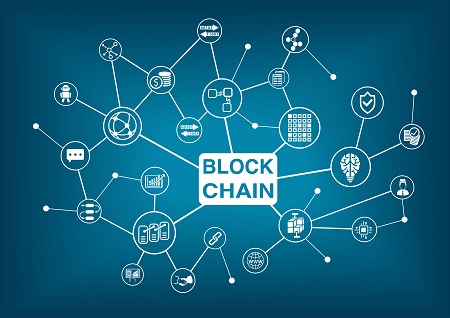 It is a type of distributed database that does not exist anywhere in the real world, making it incredibly difficult to hack since the pattern of information it publishes cannot be altered retroactively.
It is a type of distributed database that does not exist anywhere in the real world, making it incredibly difficult to hack since the pattern of information it publishes cannot be altered retroactively.
Blockchain is a digital ledger of all cryptocurrency transactions that is maintained by a network of computers. All transactions are recorded on the blockchain, which is continuously growing as “transactions” are added. The blockchain is a distributed database that can be viewed on any device with internet access.
Blockchain is both a ledger and a distributed database. The distributed nature of the blockchain makes it very difficult to hack, which is why it has become so popular in the cryptocurrency space. Before using blockchain, all transactions were recorded by a central authority, which was vulnerable to fraud. Blockchain relies on a peer-to-peer network of computers to use cryptography to ensure the integrity of transactions.
How does Blockchain work, and is it used
Blockchain technology is revolutionary, revolutionary enough to be called the next internet. But why is it so far ahead of the pack? Well, it’s cheap, spam-proof, and corruption-resistant. There’s no central server to hack, and no one can create a fake transaction to do a runner with your Bitcoins. It’s a peer-to-peer network, meaning anybody can work on it, and everybody enjoys equal access to the source code.
Blockchain is a decentralized ledger system that stores transaction data in a public database. Data stored on the blockchain is shared and hence can not be altered. This immutable public database is catching the attention of many industries and, most notably, the food and beverage industry. Food and beverage companies use blockchains for traceability and security, but they can also use them to ensure the authenticity and safety of their products.
Despite the recent crash, cryptocurrencies are still getting a lot of attention, but could they really become the future of money? Blockchain technology is already transforming the financial sector. It provides the foundation for cryptocurrencies like Bitcoin, but it also has broader applications. It can make complex financial contracts easier to enforce, verify the origin of products and protect consumers from identity theft. Blockchain is a technology that enables a distributed ledger, a record of every transaction ever made, to be shared and copied across a network of computers without the need for a central authority. It’s a method of recording and verifying information shared by all the computers in a network, rather than a single set of records kept within a single location.
Blockchain is a type of distributed ledger system, or database, that manages transactions made between two parties without the need for a central authority. The technology is a digital, distributed ledger of transactions, with a continuously increasing set of records, called blocks, linked and secured using cryptography.
Why is blockchain technology so important? Most people know it as the technology that powers cryptocurrencies like Bitcoin and Ethereum. But the blockchain is much more than that. It is a distributed database that can securely store data and transfer it to others securely and transparently. The exchange of data without a central authority or third party is one of the key advantages of blockchains.
ChesWorkShop commits to presenting fair and reliable information on subjects including cryptocurrency, finance, trading, and stocks. However, we do not have the capacity to offer financial guidance, advocating instead for users to conduct their own diligent research.
